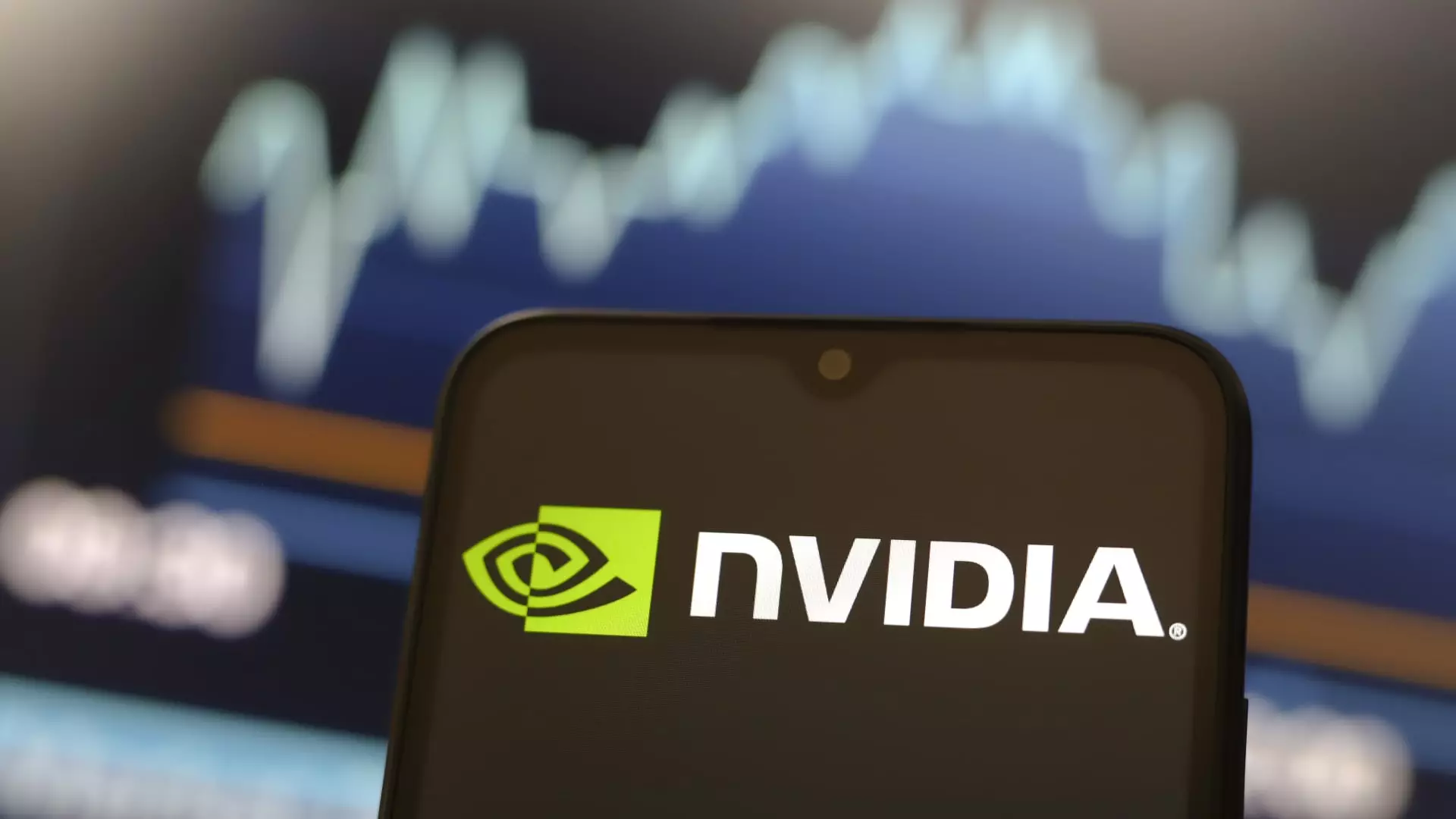The world of stock trading is often volatile, but recent midday trading has brought several noteworthy developments that have sent shockwaves through the market. From semiconductor titans tumbling to niche players making headway, investors find themselves grappling with increasing uncertainty, particularly around the artificial intelligence (AI) sector. This article takes a comprehensive look at the key players involved and the implications of recent trading trends.
At the forefront of the trading plunge is Nvidia, a chipmaking giant that witnessed a staggering drop of nearly 17%. The catalyst for this significant decline appears to be the unexpected performance of a language model developed by DeepSeek, a relatively obscure Chinese startup. This revelation has stirred doubts regarding the staggering investments major companies have made in AI technologies. Investors are left to ponder whether these investments will yield the promised transformative results or if they are inflated based on hype. As Nvidia faces the prospect of its worst single-day drop since March 2020, other semiconductor stocks have followed suit. Broadcom, Micron, and Advanced Micro Devices endured losses of more than 17%, 11%, and 6%, respectively. Additionally, the VanEck Semiconductor ETF (SMH) saw a decline of nearly 10%, illustrating that sentiment around AI investments is not just isolated to Nvidia, but rather a broader concern affecting an entire sector.
The implications of these developments extend into the realms of other tech giants. Microsoft observed a decline of over 2% while Oracle’s stock plummeted more than 13%. With Microsoft openly committing to an $80 billion investment in AI data centers for the upcoming fiscal year—the bulk of which is allocated for projects in the U.S.—investors are questioning the potential return on investment. Oracle, meanwhile, is backing a collaborative AI infrastructure initiative named Stargate, which has sparked additional scrutiny. The concerns regarding the viability of such projects mirror apprehensions seen within the semiconductor industry, suggesting a widespread skepticism regarding the future of major investments in AI.
The impact of AI uncertainties has not been limited to tech and semiconductor stocks; the challenges resonate throughout various sectors, especially power companies tied to AI data center development. Firms such as Constellation Energy and Vistra have suffered dramatic losses of over 20% and 28%, respectively. Even traditional energy suppliers like GE Vernova and Talen Energy faced a decline of more than 21%.
The chaos in the tech landscape has also trickled into the cryptocurrency sector, leading to notable declines in related stocks. Coinbase and MicroStrategy saw losses of 6% and 1%, respectively, reflecting how interconnected the markets are. Bitcoin miners, which are intricately linked to powering AI ventures, reported severe losses; for instance, Core Scientific and TeraWulf experienced declines of upwards of 29%. Iren, formerly known as Iris Energy, fell more than 24%, underscoring the fragility of these markets in the face of sector-wide jitters.
Not all stocks are reacting negatively to these tumultuous conditions. AT&T’s shares rose over 6% after reporting fourth-quarter results that exceeded analyst expectations, with adjusted earnings reaching 54 cents per share against an anticipated 50 cents. This kind of performance demonstrates that optimism can prevail even in bearish conditions.
Similarly, Travel + Leisure’s stock gained over 2% following a major upgrade from Bank of America, indicating positive growth prospects in leisure travel. Titan Machinery also saw a notable rise of 10.4% after Baird upgraded its status, attributing potential growth to diminishing inventories.
In the biotech arena, Exelixis ticked upward by slightly more than 1%, buoyed by positive reassessments from Morgan Stanley. On the flip side, Ralph Lauren struggled, with shares dropping 3.2% after being downgraded by Raymond James, as market analysts expressed skepticism about its recent rally and the potential adverse impact of a stronger U.S. dollar.
As today’s trading unfolds, it is evident that the concerns surrounding AI investments have precipitated a considerably volatile market environment. Investors are reassessing their positions and the broader implications of reduced valuations in key sectors. Moving forward, the question remains whether this market trepidation is merely a short-lived episode or indicative of long-term systemic issues within the tech industry and its associated sectors.

